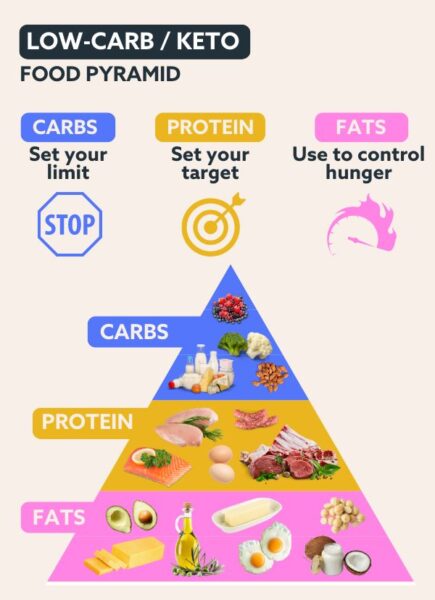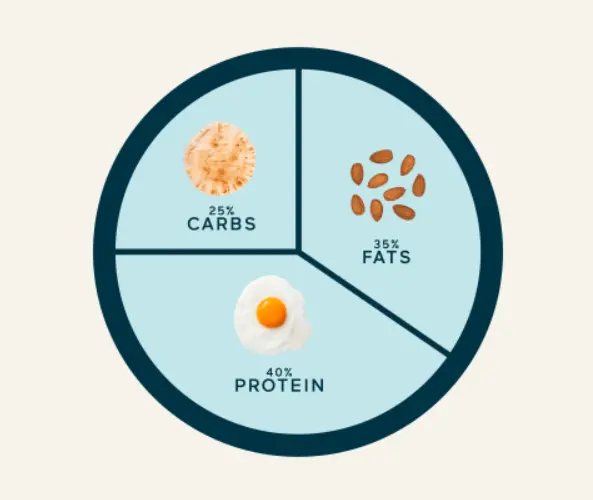In the ever-evolving world of diets and nutrition, it can be tough to figure out what’s right for you. One approach that’s gained a lot of traction over the years is the high-protein, low-carb diet. But why all the hype? Is this diet really beneficial, or just another trend? Let’s dive in and explore the numerous benefits of this popular dietary approach and why it might be worth considering for your health and fitness goals.

1. Boosted Weight Loss
One of the main reasons people choose a high-protein, low-carb diet is for its weight loss benefits. Carbohydrates are typically broken down into glucose, which can raise blood sugar levels and, in excess, get stored as fat. When you reduce your carb intake, your body is forced to use stored fat for energy, promoting fat loss.

Protein, on the other hand, is incredibly satiating. It helps keep you full for longer, reducing those pesky cravings and the likelihood of overeating. When combined, fewer carbs and more protein can lead to more effective and sustained weight loss. It’s no wonder many people find this diet effective for slimming down without feeling deprived!
2. Improved Muscle Health and Growth
Protein is the building block of muscles, so it makes sense that consuming more of it can enhance muscle growth and repair. Whether you’re lifting weights or just want to maintain lean muscle mass as you age, a high-protein diet is crucial. The body uses amino acids from proteins to repair tissues and build new muscle, which is essential for anyone looking to tone up or stay fit.
For athletes and fitness enthusiasts, a high-protein, low-carb diet can also improve recovery time after workouts. Carbs, when eaten in moderation, provide quick energy, but protein ensures your muscles recover efficiently, reducing soreness and allowing you to stay consistent with your fitness routine.
3. Better Blood Sugar Control
One of the key benefits of a high-protein, low-carb diet, especially for those with insulin resistance or type 2 diabetes, is improved blood sugar control. Carbohydrates—especially refined ones like sugar and white bread—can cause blood sugar spikes that lead to energy crashes, cravings, and potential long-term issues like diabetes.
By reducing carbs, you help keep blood sugar levels stable. Increasing protein intake also slows the absorption of sugars into the bloodstream, further steadying glucose levels. This combination makes a high-protein, low-carb diet an ideal approach for anyone looking to manage or prevent blood sugar-related health issues.
4. Increased Fat-Burning Potential
When you follow a high-protein, low-carb diet, your body enters a state called ketosis. In this state, your body shifts from burning carbs as its primary source of fuel to burning fat instead. This is part of the science behind the popular ketogenic diet, which focuses on keeping carbs extremely low to induce ketosis.

While not every high-protein, low-carb diet is designed to induce ketosis, many still create a fat-burning environment in the body due to lower insulin levels and less available glucose. As your body adapts to burning fat, you’ll notice a decrease in body fat and a leaner physique.
5. Supports Heart Health
There’s a common misconception that a diet higher in protein, particularly from sources like red meat, can harm heart health. However, many studies have shown that when done right, a high-protein, low-carb diet can actually improve heart health.
When you focus on lean proteins like fish, chicken, and plant-based options, and pair them with healthy fats like avocado, nuts, and olive oil, you create a diet that’s rich in heart-healthy nutrients. Furthermore, reducing the intake of refined carbohydrates and sugars, which are known to increase triglycerides and bad cholesterol, can lower the risk of heart disease.
6. Better Brain Function
You’ve probably heard of “brain fog” — that sluggish, cloudy feeling that makes it hard to concentrate or think clearly. Carbs, especially refined ones, can contribute to this fog by causing rapid fluctuations in blood sugar.
When you switch to a high-protein, low-carb diet, you may notice improvements in your cognitive function and mental clarity. Protein provides essential amino acids that support neurotransmitter production, helping your brain function optimally. Meanwhile, stabilizing blood sugar levels helps keep your energy and focus steady throughout the day.
7. Increased Metabolism
Protein has a higher thermic effect of food (TEF) compared to carbs and fats, meaning your body burns more calories digesting and metabolizing it. This increase in calorie expenditure can give your metabolism a boost, aiding in weight loss and overall energy balance.
Additionally, a high-protein diet helps preserve lean muscle mass, which is critical for keeping your metabolism active. More muscle means more calories burned, even at rest. So, if you’re looking to rev up your metabolism, a high-protein, low-carb diet can be a great strategy.
8. Reduced Hunger and Cravings
One of the main reasons people struggle with dieting is hunger. Constant hunger and cravings can derail even the most disciplined dieter. Luckily, protein is incredibly satiating. It takes longer to digest than carbohydrates, meaning it keeps you feeling full and satisfied for a longer period.
Furthermore, cutting out or reducing carbs, especially refined sugars, can help decrease cravings. Refined carbs cause quick spikes and drops in blood sugar, which often lead to cravings for more sugar or starchy foods. By focusing on protein and healthy fats, you’ll likely experience fewer cravings, making it easier to stick to your diet plan.
9. Supports Healthy Aging
As we age, maintaining muscle mass becomes crucial to staying active and independent. A high-protein, low-carb diet can help slow down age-related muscle loss, known as sarcopenia. Protein intake supports muscle maintenance, and staying active with sufficient protein can reduce the risk of falls and fractures in older adults.
Additionally, limiting carbs, especially those from processed and sugary sources, helps reduce inflammation and oxidative stress in the body, which are factors that contribute to aging. Combined, this makes a high-protein, low-carb diet a fantastic choice for healthy aging.
Final Thoughts – benefits of a high protein low carb diet
A high-protein, low-carb diet comes with numerous benefits, from weight loss and muscle health to improved brain function and heart health. While every diet has its pros and cons, this particular approach can be a sustainable and effective way to achieve your health and fitness goals.
As with any dietary change, it’s essential to listen to your body and consult with a healthcare professional to ensure it’s the right fit for you.
Ready to give the high-protein, low-carb lifestyle a try? Start by incorporating more lean proteins and healthy fats into your meals, and gradually reduce refined carbohydrates. Your body—and your taste buds—will thank you!
